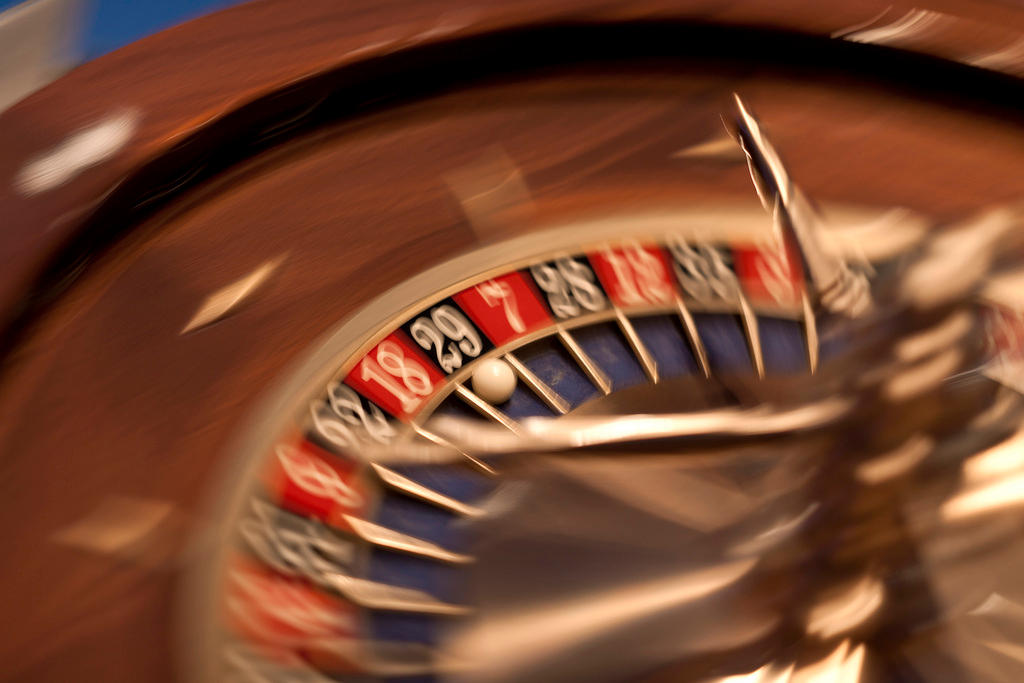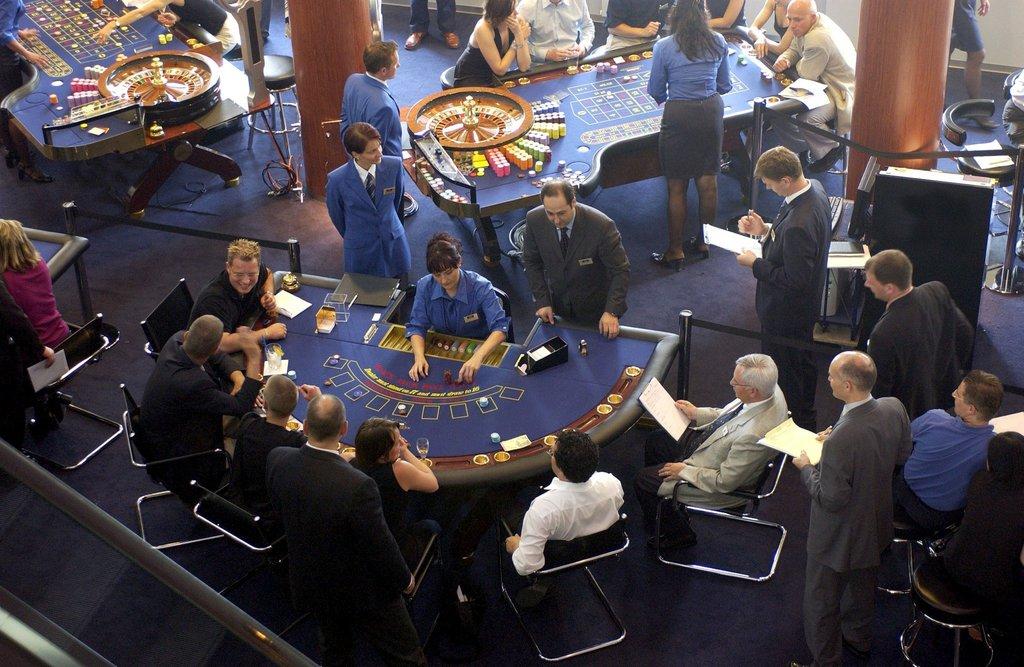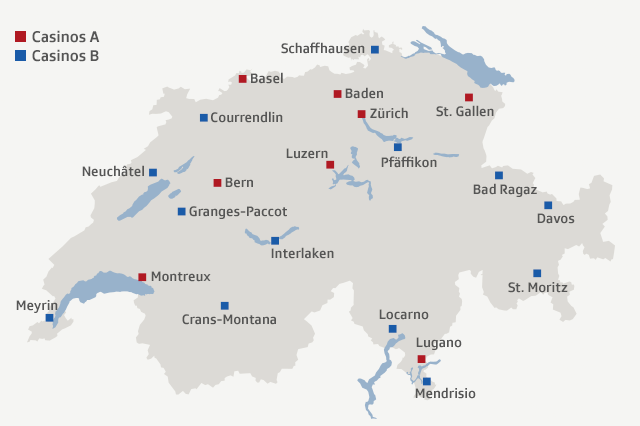
Lucrative gambling business comes under public scrutiny

The stakes are high as Swiss voters decide in June about a new gambling law, including a ban on using the websites of foreign casinos. Youth wings of several political parties have mounted a challenge.
Supporters argue the legal amendment is a financial boon for society and will help prevent gambling addiction. For opponents, the law will preserve the monopoly of the 21 casinos in Switzerland and amounts to censorship of the internet.
Under the new law agreed by parliament last September, Swiss casinos can offer online versions of roulette, blackjack and poker if a majority of voters comes out in favour on June 10.
In the future, licenced operators of lotteries and sports betting would be allowed to offer new forms of gambling, notably with bookmakers and real-time bets, in other words while a race is in progress.

The limit of tax-free winnings from lotteries and sports bets would be raised from CHF1,000 ($1,040) to CHF1 million. In addition, the amended law lifts restrictions on small poker tournaments outside casinos.
The regulations are aimed at maintaining state control over the gambling sector while bringing the laws up to date with the digital age for the common good, according to the government.
In 2012, voters endorsed a constitutional amendment which guarantees that the social security system – notably the old age pension and disability pension schemes – as well as cultural, social and sports institutions can benefit from the gambling profits.
Digital natives
Ironically, it is the younger generation of politicians, so called digital natives, who have challenged the government promise of a modern law, forcing a referendum at the ballot box.

A broad alliance of youth wings from the political right to the left – the Swiss People’s Party, the Radicals, the Liberal Greens and the Greens – collected more than the 50,000 signatures necessary to force a nationwide vote.
They have in the meantime also won the backing of other leftwing and centre-right youth chapters.
The moves were preceded by heated debates in parliament last year. It saw the government supporting the reform, but several major parties were split over the issue.
Blocking internet access
The youth wings of the political parties may have different reasons to challenge the new legal provisions, but they stand united in their opposition to a provision aimed at blocking foreign online gambling providers, as such licences are only granted to operators of terrestrial Swiss casinos.
Opponents have criticised the denial to access websites of foreign providers as “state censorship of the internet” and warned of a “digital isolation” of Switzerland.
They argue such a policy undermines personal rights, restricting economic and information freedom, thereby setting a precedent.
“Banning online poker might just be the beginning. But where will this lead?” campaigners cautioned.

They have accused parliament and the government of granting unfair favours to Swiss casinos and warned of further protectionist measures in other sectors, thereby preventing the development of digital innovations by Swiss start-up companies.
“We have to make sure this will not happen,” said Andri Silberschmidt, president of the youth chapter of the Radicals, at a news conference in January.
No free market
The government has defended the reform. Launching the campaign ahead of the vote, Justice Minister Simonetta Sommaruga rejected allegations of personal infringements.
The gambling sector has never been a free market as operators of lotteries and betting services need a licence, she said at a news conference in March.
“We have a pragmatic approach to gambling in Switzerland,” she said. “In the future, online providers are subject to the same rules as all others.”
She argued that the new regulations help prevent fraud, money laundering and gambling addiction also in virtual casinos.
“They don’t contribute to the common good under the current regulations, depriving the old age pension scheme and sporting, cultural and social institutions of an estimated CHF250 million annually,” she said.
Sommaruga stressed that 17 countries in Europe, including neighbouring France and Italy, had taken similar steps to regulate online gambling.
She added that prevention measures would be extended to fight gambling addiction.
Blame game
The campaign has been marked by both sides accusing each other of being on the payroll of important lobby groups in Switzerland and abroad.
Confronted with the criticism, a referendum committee admitted having accepted money from foreign donors, arguing such a procedure was perfectly legitimate. However, the issue has caused tensions between rightwing and leftwing referendum groups.
Opponents of the law have pointed the finger at their political adversaries, saying their campaign was sponsored by Swiss casino operators as well as the institutions benefiting from the gambling revenue under a constitutional amendment.
It amounts to about CHF1 billion annually for the social security schemes and cantons as well as cultural, social and sporting institutions.
Observers have pointed out that the supporters have the public backing of a broad range of institutions, as well as majority of the cantons, which share responsibility with the national authorities when it comes to gambling and betting licences.

In compliance with the JTI standards
More: SWI swissinfo.ch certified by the Journalism Trust Initiative




























You can find an overview of ongoing debates with our journalists here . Please join us!
If you want to start a conversation about a topic raised in this article or want to report factual errors, email us at english@swissinfo.ch.